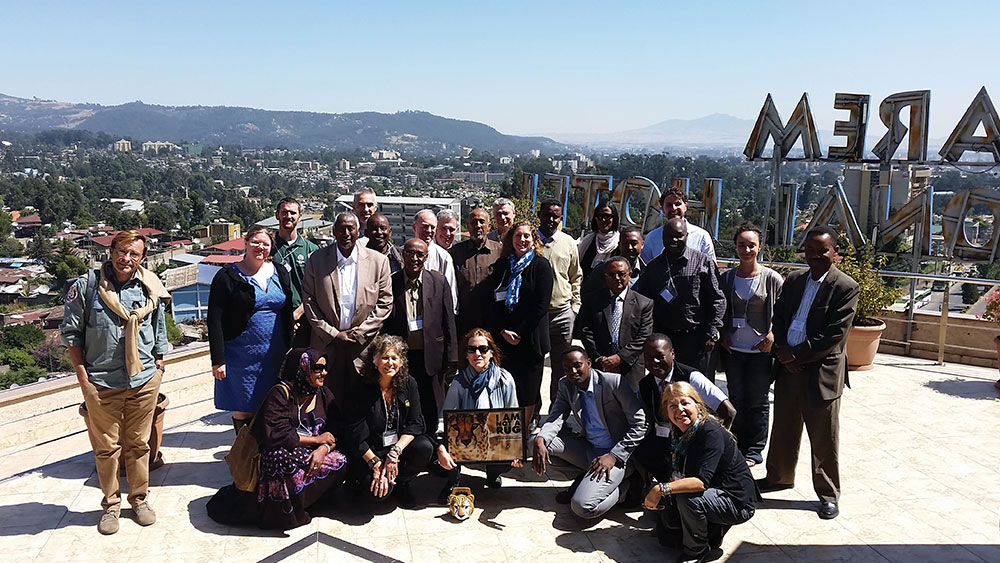Illegal Trafficking: Horn of Africa-Wildlife Enforcement Network
-

- by CCF Staff February 15, 2017

The Horn of Africa has emerged as a region for wildlife crime both as a source and a transit route for illicit wildlife products and live animals, but especially the cheetah. CCF first became actively involved with the illegal taking of live cheetahs in November 2005, when it arranged for the confiscation of two extremely unhealthy cheetah cubs held in ropes outside a restaurant in Ethiopia. Since then, CCF has monitored the illegal trade, which is estimated to involve as many as 300 cubs each year being smuggled through the Horn of Africa into the Arabian Peninsula, where they are destined for the illegal exotic pet trade. This subject was a topic at the 4th Steering Committee Meeting of the Horn of Africa–Wildlife Enforcement Network (HA-WEN) held December 7 and 8, 2016, in Addis Ababa, Ethiopia. Following the meeting, a three-day workshop brought together a small group of specialists to develop an action plan to combat this problem.
Dr. Laurie Marker and Patricia Tricorache represented CCF at the meeting, which was organized by the Horn of Africa–Regional Environment Centre and Network in collaboration with the Ethiopian Wildlife Conservation Authority. In addition to government representatives from several of the countries in the Horn, the meeting brought together experts from International Union for Conservation of Nature (IUCN), Colorado State University, International Fund for Animal Welfare (IFAW), and the Born Free Foundation’s Border Point Project, DECAN Djibouti.

The group discussed creating a Wildlife Conservation Plan to protect animals in the Horn. One of the goals was to determine how local indigenous populations can play a greater role in preventing wildlife crimes. A second goal was to develop rapid response protocols for care of the cubs when confiscations occur. Plans around cross border cooperation were also developed.
“We were all overwhelmed learning what a big problem this is,” said Dr. Marker. “But knowing there are many of us with common objectives who are willing to work together on the solution gives us hope.”
HA-WEN members currently consist of Djibouti, Eritrea, Ethiopia, Kenya, Somalia, South Sudan, Sudan, and Uganda. Increasing evidence shows that there is widespread trafficking of cheetahs in the Horn of Africa, with most animals destined for countries in the Arabian Peninsula.
Related Reading
-
September 2, 2025
A New Way to Follow the Fastest Cat on Earth -
September 27, 2024
Representing the Cheetah at the AZA Conference




